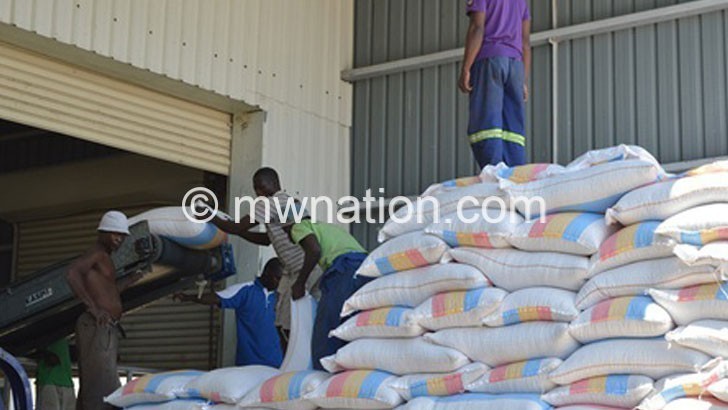Access to credit hampering maize trade—Study
An analysis of the 2018/19 maize market has found that limited access to credit is a critical barrier to the expansion of maize trade in the country which has heavily affected small-scale traders and farmers.
The report by International Food Policy Research Institute (IFPRI) released on Monday found that both farmers and small traders struggle to obtain credit due to stringent collateral requirements and high interest rates.

The study observed that the high cost of financing coupled with high storage costs reduce the incentive to store maize and that there is more competition among small scale traders than big and established traders.
The study recommends that government should work with the private financial institutions to increase credit access for small and medium scale enterprises.
Reads the report in part: “Malawi’s maize market is pyramidal in structure: highly competitive at lower tiers of trade but less competitive at higher tiers. More private sector investment is needed to promote competition and competitive pricing, particularly at its higher tiers.
“The unpredictable regulatory environment is a disincentive to maize marketing especially storage. A more predictable policy environment, especially on export bans and minimum farm gate and procurement prices, would encourage more private sector investment in the maize market and increased marketing and sales.”
The study also notes there is a widespread absence of standardized grades and quantity measures hence advises that institutionalising quality grades and standardised weights and measures will promote structured trading and reduce cheating by a minority of unscrupulous traders.
The study also found that there is limited use of existing structured markets, such as commodity exchanges, warehouse receipt systems, and marketing contracts and recommended that the promotion of structured trading might help to stabilise the highly seasonal maize volumes and volatile prices found in Malawi.
Grain Traders Association of Malawi chairperson Grace Mijiga agreed with the findings of the study, specifically for small scale traders and farmers who sell maize within the local set up.
She said: “There are two sides to this issue, the reason is the import and export ban because when the market is open for export and one has a contract from any international buyer the financial institutions are willing to grant a loan based on the contract financing product.
“Locally most traders do not go into contractual financing agreement, with commercial banks because traders buy and store maize based on a speculative market. This is why financial institutions demand collateral or demand a supply contract for loan access.”
She said if government policies were non-restrictive on import and export of maize there could be no such problems such as access to finance locally.
Mijiga highlighted that even the Agricultural Development and Marketing Corporation (Admarc) does not give contracts for grain traders or farmers that can be used to access finance from institutions.
She said at least the National Food Reserve Agency (NFRA) offers contracts, but only benefits big maize traders as opposed to small-scale traders and farmers.
According to her, previously banks tried to issue loans based on speculative market but it did not work due to the volatility of the maize market; hence, banks are currently cautious to provide financing without supply contracts.
Mijiga described the current maize market as volatile due to the international pressure that has created a speculative market due to huge deficits of maize in Kenya, Zambia and Zimbabwe.
Currently, maize prices in rural areas is at K200 per kilogramme (kg) or K10 000 per 50 kg bag and around K230 per kg in urban areas (about K11 500 per bag). n





